Police will be better off focusing on probing graft allegations

We are troubled by the Bangladesh Police Service Association's (BPSA) scathing assessment of media reports on the alleged involvement of some retired and serving police officials in corruption, which it termed "partial," "ill-motivated," and "exaggerated." In letters sent to all media editors on Friday, the BPSA came down heavily on the media for what it called a "smear campaign" against the police force. As has been pointed out by the journalist community, the tone of the statement appeared to intimidate journalists, urging caution about reporting on police. This, along with the news of some BPSA members apparently demanding legal action at a prior meeting of the platform, rightly got journalists worried at a time when independent journalism is already under serious strain.
The reports published in the media made serious allegations of corruption against certain police officials. But they didn't portray the whole force as being corrupt. Therefore, the claim that the reports were aimed at "tarnishing the image of police" is a slippery slope argument. In fact, the media has constantly played a significant role in celebrating and pointing out the critical role played by any police force, including ours. At the same time, it is the duty of the media to hold those in power to account for any abuse of authority. Reports unearthing corruption by police officials are but an exercise in that vein. Instead of deeming them as ill-motivated, a more appropriate response would have been a prompt announcement of internal investigations or support for independent probes into these serious allegations, as correctly pointed out by the Transparency International Bangladesh.
Interestingly, even though said media reports do not make a blanket accusation against the police force, the BPSA seems to do just that in its portrayal of the media. Moreover, while calling out the reports as a "smear campaign" against its members, it did not name any victims of alleged defamation, which is necessary. The importance of being precise and accurate, whether in journalism or police work, cannot be overstated. In any case, independent media certainly deserves a more considerate appraisal of the crucial role it plays in upholding democracy and people's constitutional rights.
What we are most worried about is the effect of such statements. At a time when police are failing to show "zero tolerance" for corruption within the force, even in the small number of cases that are reported, a defensive and thinly-veiled intimidating statement may further shrink the space for investigative journalism that brings out such instances of corruption. Moreover, for the police administration to use the association, which involves all in the police, for this purpose sets a dangerous precedent. We hope that the police administration will take cognisance of these concerns, focus on bolstering its internal investigative and disciplinary mechanisms to stop corruption, and extend unconditional support to the media to perform its duty of keeping the nation informed.

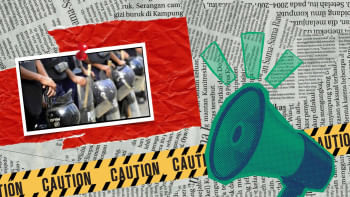
 For all latest news, follow The Daily Star's Google News channel.
For all latest news, follow The Daily Star's Google News channel. 
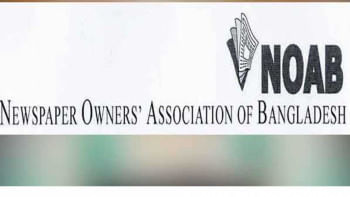


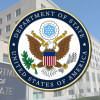

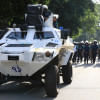
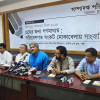



Comments